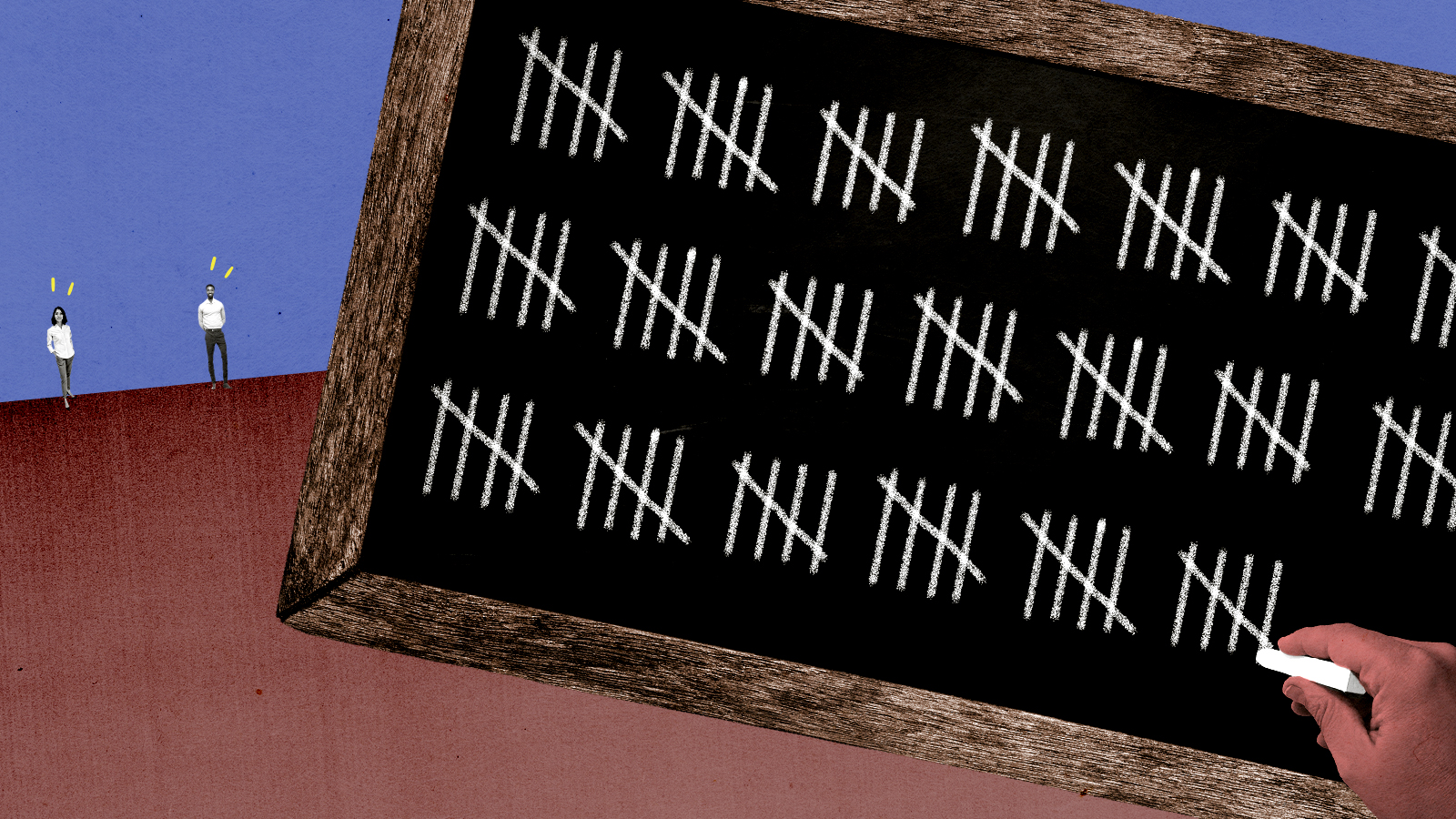The government is shockingly bad at counting stuff


A free daily email with the biggest news stories of the day – and the best features from TheWeek.com
You are now subscribed
Your newsletter sign-up was successful
Political scientists like to talk about and measure "state capacity" — a government's ability to accomplish policy goals. But before a government can set goals and succeed or fail in achieving them, it must know what's actually happening in the country. Judged by that rudimentary measure, we're falling far short of where we should be.
The truth is, the government is shockingly bad at counting stuff.
As Matthew Yglesias points out in the title of a distressing but illuminating Substack post, "The CDC's vaccine data is all wrong." Examining aggregate data at the national, state, and local level, Yglesias confirms what The Week's Bonnie Kristian reported in July about Pennsylvania's vaccination rates — namely, that the reported numbers at different levels of government don't match, with states reporting lower vaccination rates than national figures and counties reporting lower rates than states.
The Week
Escape your echo chamber. Get the facts behind the news, plus analysis from multiple perspectives.

Sign up for The Week's Free Newsletters
From our morning news briefing to a weekly Good News Newsletter, get the best of The Week delivered directly to your inbox.
From our morning news briefing to a weekly Good News Newsletter, get the best of The Week delivered directly to your inbox.
Why has this happened? Most likely because much of the data has been (in Yglesias' words) "de-identified for privacy purposes," leading to systemic inaccuracy that tends to inflate the number of people receiving vaccine doses. If, for example, I receive my first shot in one municipality, county, or state, my second shot in another, and my booster in a third, I may end up counted as three people receiving their first shots, or one person receiving two shots and a second person receiving a first dose. Without collecting identifying information, there's no way to identify (let alone correct) the accuracy.
It would be one thing — bad but perhaps somewhat understandable — if this problem were entirely a function of the peculiarities and confusions of the COVID-19 pandemic. But as Yglesias noted in a post from August, privacy concerns also lead the Census to "deliberately put errors" into our once-in-a-decade effort to take stock of the American population. For other, mysterious reasons, the government is likewise notoriously bad at compiling accurate crime data.
This obviously makes everyone who relies on these inaccurate data (including ordinary citizens, journalists, and specialized scholars) less informed about the reality of American life. But it also makes the government much less effective than it otherwise could be, since it's left groping around in the dark instead of acting on the basis of an accurate overview of what's really happening in the country.
If we can't get even the most basic and easy stuff right, there's little hope to reverse America's declining state capacity.
A free daily email with the biggest news stories of the day – and the best features from TheWeek.com
Damon Linker is a senior correspondent at TheWeek.com. He is also a former contributing editor at The New Republic and the author of The Theocons and The Religious Test.
-
 Why are election experts taking Trump’s midterm threats seriously?
Why are election experts taking Trump’s midterm threats seriously?IN THE SPOTLIGHT As the president muses about polling place deployments and a centralized electoral system aimed at one-party control, lawmakers are taking this administration at its word
-
 ‘Restaurateurs have become millionaires’
‘Restaurateurs have become millionaires’Instant Opinion Opinion, comment and editorials of the day
-
 Earth is rapidly approaching a ‘hothouse’ trajectory of warming
Earth is rapidly approaching a ‘hothouse’ trajectory of warmingThe explainer It may become impossible to fix
-
 Epstein files topple law CEO, roil UK government
Epstein files topple law CEO, roil UK governmentSpeed Read Peter Mandelson, Britain’s former ambassador to the US, is caught up in the scandal
-
 Iran and US prepare to meet after skirmishes
Iran and US prepare to meet after skirmishesSpeed Read The incident comes amid heightened tensions in the Middle East
-
 Israel retrieves final hostage’s body from Gaza
Israel retrieves final hostage’s body from GazaSpeed Read The 24-year-old police officer was killed during the initial Hamas attack
-
 China’s Xi targets top general in growing purge
China’s Xi targets top general in growing purgeSpeed Read Zhang Youxia is being investigated over ‘grave violations’ of the law
-
 Panama and Canada are negotiating over a crucial copper mine
Panama and Canada are negotiating over a crucial copper mineIn the Spotlight Panama is set to make a final decision on the mine this summer
-
 Why Greenland’s natural resources are nearly impossible to mine
Why Greenland’s natural resources are nearly impossible to mineThe Explainer The country’s natural landscape makes the task extremely difficult
-
 Iran cuts internet as protests escalate
Iran cuts internet as protests escalateSpeed Reada Government buildings across the country have been set on fire
-
 US nabs ‘shadow’ tanker claimed by Russia
US nabs ‘shadow’ tanker claimed by RussiaSpeed Read The ship was one of two vessels seized by the US military
